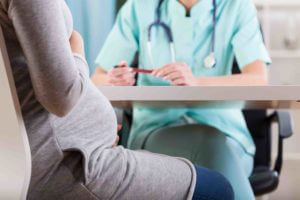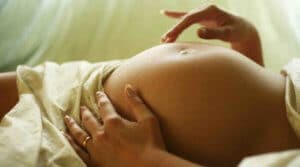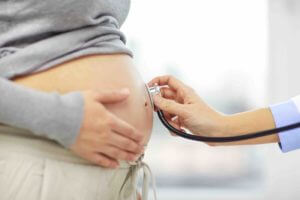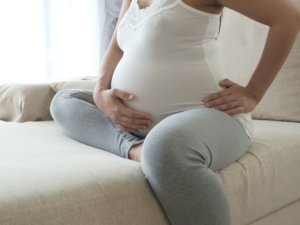Actually, pregnancy is supposed to be the most beautiful time in a woman’s life. However, in some cases it is the exact opposite and the woman just feels empty and sad. Then there is talk of pregnancy depression.
Table of contents
Depression During Pregnancy Is Not Uncommon
It is estimated that 10% of pregnant women suffer from depression during pregnancy. Most women are good at hiding it or covering it up, because they have a guilty conscience towards their environment.
Signs Of Pregnancy Depression
It is not always easy to distinguish the swim swings that expectant mothers have due to the hormonal changes from pregnancy depression. The so-called “Edinburgh Postpartum Depression Scale” can be used for this purpose. Here, 10 questions about the personal mental state are used to determine whether there are signs of depression.
Here Are A Few Signs At A Glance:
- Strongly negative thoughts about the child and pregnancy.
- Fear of not being enough for the child.
- Loss of pleasure in many things.
- Lack of drive and no strength for everyday things.
- Neglect of prenatal care.
- Persistent dejection/ sadness.
- Sleep problems and extreme tiredness.
- Endless sadness.
What Are The Causes Of Depression During Pregnancy?
Hormonal Changes And Changed Life Circumstances
The causes of pregnancy depression vary. Of course, the change in hormonal balance plays a role in it. The intensive production of progesterone and estrogen leads to these changeable feelings.
The changed life circumstances also play a role – after all, everything is suddenly different. You become aware that a baby is growing inside you and that your life will change completely. Even if the pregnancy was wanted, this can sometimes throw a woman off her game.
Problems In The Environment
Problems in the partnership or family and strenuous and stressful events can also trigger depression. Other causes can be complications during pregnancy or abuse in the past. Even seemingly happy circumstances, such as the current pregnancy after several miscarriages or a long desire to have children, can lead to depression.
What Are The Consequences Of Pregnancy Depression?
About half of the women who suffer from pregnancy depression develop a so-called postpartum depression shortly after giving birth. An impaired mother-child relationship can also be a consequence.
But even the baby is not completely unaffected by its mother’s emotional state. Thus, it can happen that due to the pregnancy depression a delayed growth of the child can occur or even a premature birth can be attributed to it.
How To Treat And Cope With Pregnancy Depression?
One way to counteract depression is to have small moments of pampering for yourself. Go easy on yourself and don’t try to do justice to everything and everyone.
When the baby is here, you will have less time for yourself. Therefore, make the most of your time, grab a book, take a relaxing bath or go for a walk. If you take care of yourself, you will also take care of your baby.
Don’t bottle things up. If you are experiencing negative feelings, anxiety, or sadness, be sure to talk about it. Your partner will probably be the best person to support you in your situation. However, this is only possible if you talk openly about it with him.
If you are suffering from the symptoms for more than two weeks and cannot get rid of them on your own, it is advisable to seek help from a counseling center, such as Profamilia and therapists. It is important that you have someone you feel safe with and trust. Your doctor or midwife are also people to talk to about your negative feelings.
Seeking help from other people is not a sign of weakness and is nothing to be ashamed of! It rather shows your sense of responsibility as a good mother!
Whether antidepressant medications need to be taken depends on a careful risk-benefit analysis, which must also take into account the severity of the depression and the effects on the baby.
Alternative Therapies
Before leaning toward medication, try alternative therapies first, such as light therapy.
Light Therapy
The advantages of light therapy are many: it is inexpensive, it can be done on an outpatient basis or at home, and there are no side effects for either the mother or the baby.
Other Alternative Therapies
Homeopathic remedies, Bach flowers or acupuncture can also help. Physical activities, such as exercise in the fresh air or yoga and Pilates, are considered by many pregnant women to be a good balance.













4 thoughts on “Pregnancy Depression – Where It Comes From, How To Recognise And Manage It”